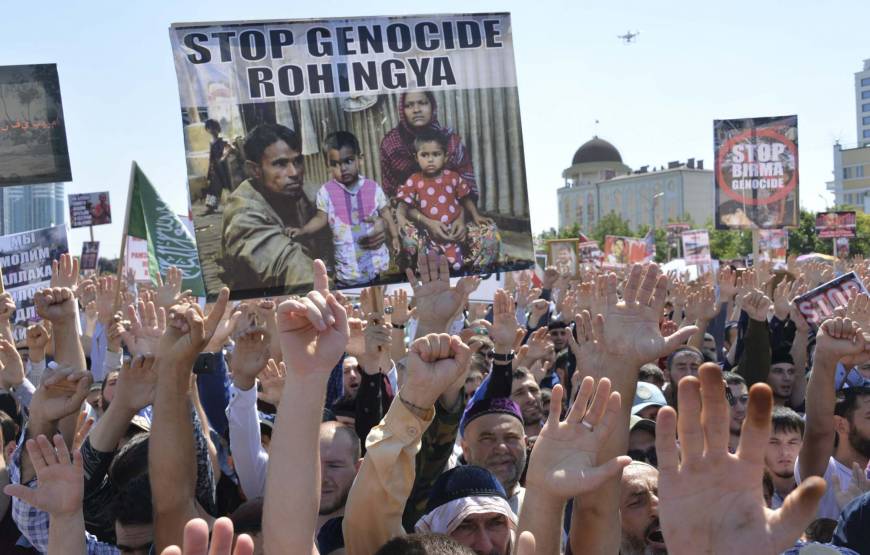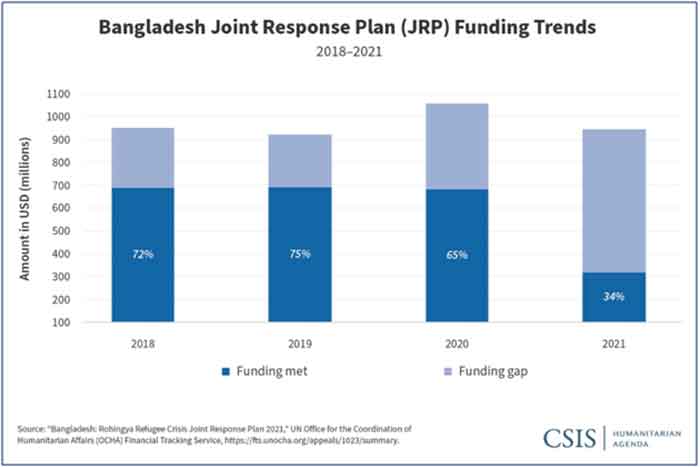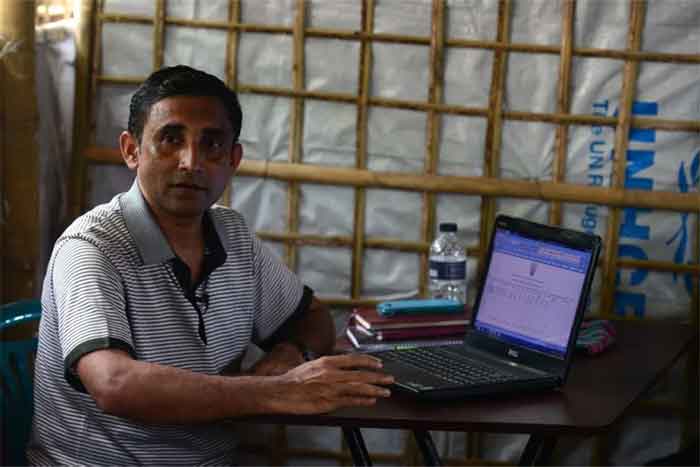
Driven out of homeland and in search of a shore to call as one’s own- the story of every refugee fits in this framework. Termed as the most persecuted people of 21st century, life of Rohingya refugees since decades has been all about striking a balance between series of uprooting and stay planted as long as they are on the Earth. Belonging to the Rakhine state of Myanmar, the Rohingya Muslims are considered as outcastes and illegal colonial migrants from East Bengal in the country. Though granted citizenship after Burmese independence in 1948, their status has been drastically altered by the subsequent nationalist leaders and military dictators, subjecting them to continuous persecution since 1978. Having been meted out with the worst of human rights violations which include the stripping of citizenship rights, forced labor, massive physical and sexual violence, arbitrary detention and torture, resource grabbing and enforced disappearances, Rohingya Muslims have been flooding to neighboring countries like Bangladesh, India, Indonesia, and Thailand and even to faraway lands like Australia, in search of peace and basic dignity.
Considering the porous nature and comparable ease of crossing the border, thousands of Rohingyas have reached India too as refugees. Their numbers swelled to nearly forty thousand since the 2017 Myanmar military persecution, and with most of the population settled in Muslim majority areas of Delhi, Hyderabad, Calcutta, Jammu, Jaipur (Rajasthan) and Mewat (Haryana). Many of them also possess the UNHCR issued refugee cards which entitle them with the immunity from arbitrary detentions and evictions. This has also helped in securing livelihood in these regions, by engaging in construction labor, street vending, cleaning and even agriculture. Despite the paltry nature of jobs and earning, most of them were content and feeling blessed as they have escaped from hell of a place. However, since 2014, when the right wing BJP government came to power in India, there have been uproars from different quarters demanding the eviction of these so called illegal Muslim migrants. This position has even been legitimized by the Home Minister who called the foreigners ‘termites,’ and reiterated that Rohingya Muslims can never be Indian citizens since they enter the country through circuitous routes.
The demand of repatriation of Rohingya refugees by India’s ultra nationalist ruling party and its partners have subsequently culminated in a series of illegal detention and arrests of these people from their respective settlements. The latest incident occurred in Jammu, where people, including women and children were randomly picked up and detained when they couldn’t furnish the demanded documents. Even those with UNHCR cards were not spared and as per reports there has been manhandling from the official side when the Rohingyas protested the arrests. As per the latest reports, more than 150 people are detained in Hiranagar jail, the holding centre in Kathua before deportation. Such arbitrary crackdown was also rolled out in Delhi, the national capital. The main contention of the government is that the presence of such illegal migrants possess a grave security threat, in the form of their alleged collusion with terrorist groups like the IS, Pakistan’s ISI and the like. It is also believed that such refugee movements are capable of further destabilizing the already disputed North Eastern borders of the country. The government also suspects that they indulgent in fraudulent practices like furnishing forged Indian ID proofs, fund mobilizations via hawala etc. There is also the possibility of conflicts erupting between the Buddhists settled in India and the Muslim Rohingyas. The country also maintains a diplomatic position that, since it’s not a signatory to the UN Convention on Refugees, it doesn’t have the obligation to offer Rohingyas refuge and safeguards.
However from a humanitarian and international perspective, this position held by the world’s largest democracy (though which unfortunately is slipping towards an elected autocracy!) is deplorable and worth reexamining. India as a country and as a civilization has a long history of offering refuge to people from across the globe. Buddhists from Tibets, Balochs from Pakistan, Afghani refugees and many more have found a home in India. Also being signatory to treaties like International Covenant on Civil and Political Rights (ICCPR), Genocide Convention, Nations Convention on Torture etc. the country is obligated in providing humanitarian safeguards to the Rohingyas. Moreover, the Indian constitution under Article 21 itself assures ‘Right to Life and Liberty’ to any person. It can also use the soft power diplomacy in various forums like ASEAN, BIMSTEC etc. to engage in dialogue with the Myanmar government.
A mass deportation back to the hell hole where genocide awaits these people will only render India to have blood on her hands. But it can be avoided, provided the current dispensation displays a minimum humanitarian concern and political willingness. Or else what reciprocity the country which claims to be a Viswaguru and swears upon the idea of ‘Vasudaiva Kutumbakam,’ can seek in case of racial and religious atrocities committed on its own population abroad in various instances, when it has failed to offer shelter to the most persecuted humans on Earth?. The land of Buddha and Gandhi owe at least that much to humanity in stopping this civilizational crisis from becoming a blot on its existence.
Lekshmi Sujatha is an independent writer
GET COUNTERCURRENTS DAILY NEWSLETTER STRAIGHT TO YOUR INBOX















































